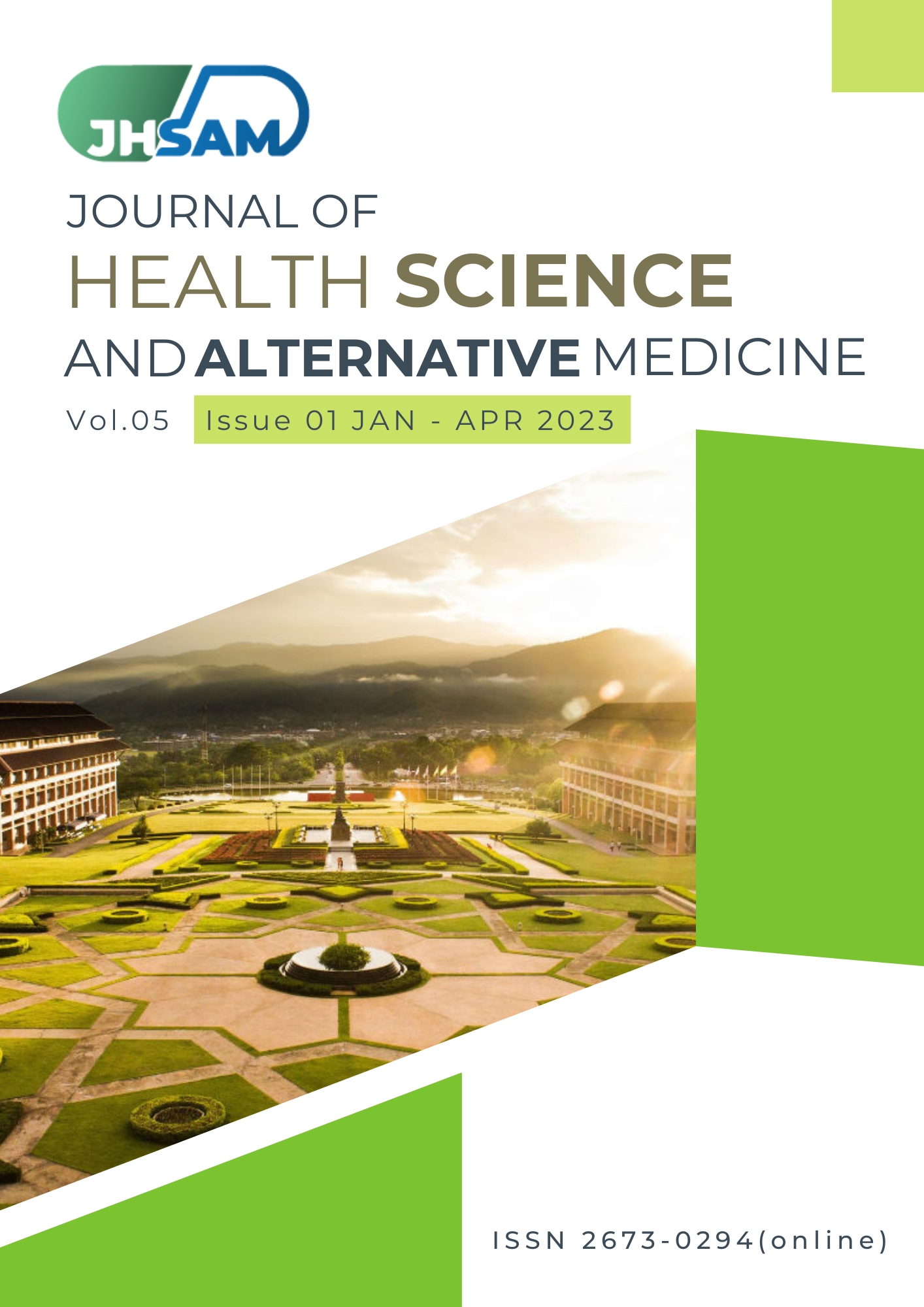Factors Effecting to Policy Implementation to Accessibility COVID-19 Vaccine in Phetchabun Province, Thailand
Main Article Content
Abstract
Introduction: Coronavirus disease 2019 (COVID-019) emerged in late 2019 and became the pandemic with a number of infections and deaths worldwide. The study aimed to determine factors associated with the policy implementation to accessibility of COVID-19 vaccine.
Methods: A cross-sectional was used to gather data from participants who were health workers who worked at health promoting hospitals in Phetchabun Province, in fiscal year 2022. A systematic random sampling was used. Data collected by validated questionnaires consisted of personal characteristics, health service system according to six building blocks, participation, and policy implementation to improve accessibility COVID-19 vaccine. Questions were validated by three experts in the field and piloted. Cronbach’s coefficient alpha was found at 0.94. Data analyzed using correlation and regression analyses.
Results: Majority of participants were female (70.25%), 30-49 years (59.09%) and Buddhist (61.9%). A half of participants (54.96%) were married or ever married, 85.54% hold a bachelor degree, 57.85% had family monthly income between 10,000-30,000 baht, 35.12% were public health professionals, and 23.97% were registered nurses. A large proportion (47.52%) had their working experience less than 10 years, and 52.89% received COVID-19 information twice per year. In the health service system, it was found that health service, medical materials, and health information and good government were highly correlated with the COVID-19 vaccine implementation. While dimension of the participating process, action was found to have the highest correlation with theCOVID-19 vaccine implementation. Five variables were found to be good predictors to the policy implementation to accessibility of COVID-19 vaccine; health workforce, action, doing activities, health information system and planning.
Conclusion: To ensure the policy implementation of COVID-19 vaccine, policy makers should focus on the elements of health workforce, action, doing activities, health information system and planning.
Keywords: Coronavirus disease 2019, COVID-19, Vaccine, Policy implementation
Article Details

This work is licensed under a Creative Commons Attribution-NonCommercial-NoDerivatives 4.0 International License.
JHSAM publishes all articles in full open access, meaning unlimited use and reuse of articles with appropriate credit to the authors.
All our articles are published under a Creative Commons "CC-BY-NC-ND 4.0". License which permits use, distribution and reproduction in any medium,
provided that the original work is properly cited and is used for noncommercial purposes.
References
Center for COVID-19 Situation Administration (CCSA). COVID-19 Thailand situation. reports, 25 July 2020. 2022. Available from:
https://media.thaigov.go.th/uploads/public_img/source/250765.pdf. (in Thai)
Department of Disease Control, Ministry of Public Health. Hand book of Public Health Officer for Emergency Response in case of Coronavirus Disease 2019 pandemic, Thailand. 2020: 10-11.
Department of Disease Prevention and Control, Phetchabun Provincial Public Health
Office. Announcement of COVID-19 Phetchabun province situation reports. Reports, 25 July 2020. 2020. Available from:
http://www.phetchabunhealth.go.th/webph2021.pdf. (in Thai)
World Health Organization (WHO). Everybody’s Business: Strengthening Health Systems to improve health outcomes. WHO’s Framework for Action. Geneva: WHO. 2007.
Daniel WW. Biostatistics: basic concepts and methodology for the health sciences. (9thed). New York: John Wiley & Sons, 2010.
John WB. Research is evaluation. (3rd ed). Englewod cliffs: N.J. Prentice Hall, 1977.
Cronbach. Essentials of psychological testing. New York: Harper and Row, 1977.
Global Health Workforce Alliance and World Health Organization. A universal truth: non health without a workforce third global forum on human resources for health report. Available from: (http://www.who.int/workforcealliance/knowledge/resources/hrhreport2013/en/). 2014.
Wanida S, Mali S. The effectiveness of the development of diabetes management model based on the principles of 6 building blocks, Sisaket Province. Research and Development Health System Journal. 2022; 15(1): 142-155.
Cohen JM, Uphoff NT. World development. New York: McGraw-Hill. 1997.
Henri Fayol. General and industrial management. London: Pitman and Sons Ltd.


